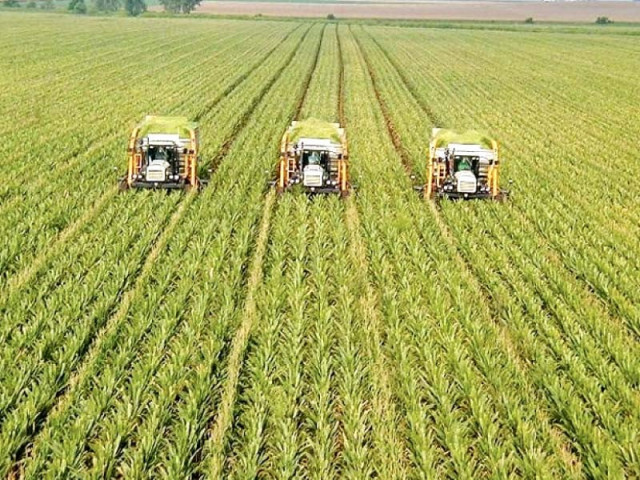Alvi calls for agricultural tech to combat climate change
Highlights need to implement decisions effectively at Regional Dialogue 2024

President Dr Arif Alvi, on Tuesday, highlighted the crucial role of adopting modern agricultural technology and effective decision-making to tackle the climate crisis, citing Pakistan’s abundance of natural resources. Speaking at the Regional Dialogue 2024 on “Climate Crisis: Shaping South Asia’s Resilience,” organised by the Institute of Regional Studies, President Alvi highlighted the need for a driving force to implement decisions effectively.
Despite Pakistan’s richness in water, renewable energy potential, and other resources, President Alvi stressed the importance of modernising agriculture. With approximately 150 million acre-feet of water available, he suggested adopting advanced techniques like spray and drip irrigation while phasing out flood irrigation. He urged the implementation of the national water policy and related legislation, along with a pricing mechanism, as it could also lead to water conservation.
President Alvi expressed concern about the criminal drainage of around 400 million gallons per day of water in Karachi into the sea through sewerage. He addressed issues like the use of prohibited nets by fishermen, causing significant loss of marine life and resulting in Europe restricting fish imports from Pakistan. Drawing parallels with countries like the Netherlands and Vietnam, he explained the potential for Pakistan to enhance its agricultural exports by adopting international standards and techniques. He said the Netherlands, which was the second largest food supplier on earth, did so despite being 19 times smaller in size than Pakistan and not having the abundance of water that we have.
Read Agriculture faces climate fallout
The president urged the promotion of modern agricultural technology among farmers, underscoring that Pakistan could contribute significantly to global food production. He commended Pakistan’s success in combating COVID-19 through data-based approaches and national unity, calling on the nation to set an example for the world.
Referring to the ample energy provided by the sun, President Alvi encouraged harnessing this potential to meet energy needs sustainably. He praised the role of think tanks, like the Institute of Regional Studies, in conducting research and urged them to market their findings to benefit policymakers. In his introductory remarks, IRS President Ambassador Nadeem Riaz highlighted the institute’s focus on regional countries and its role in providing insights to policymakers. He highlighted the vulnerability of South Asia to climate change threats, impacting the region’s ecosystem, food security, and energy.
The Regional Dialogue 2024 is the IRS’s annual flagship event, bringing together ambassadors, policymakers, researchers, and academicians to address critical issues facing South Asia.
Published in The Express Tribune, January 24th, 2024.
Like Business on Facebook, follow @TribuneBiz on Twitter to stay informed and join in the conversation.



















COMMENTS
Comments are moderated and generally will be posted if they are on-topic and not abusive.
For more information, please see our Comments FAQ